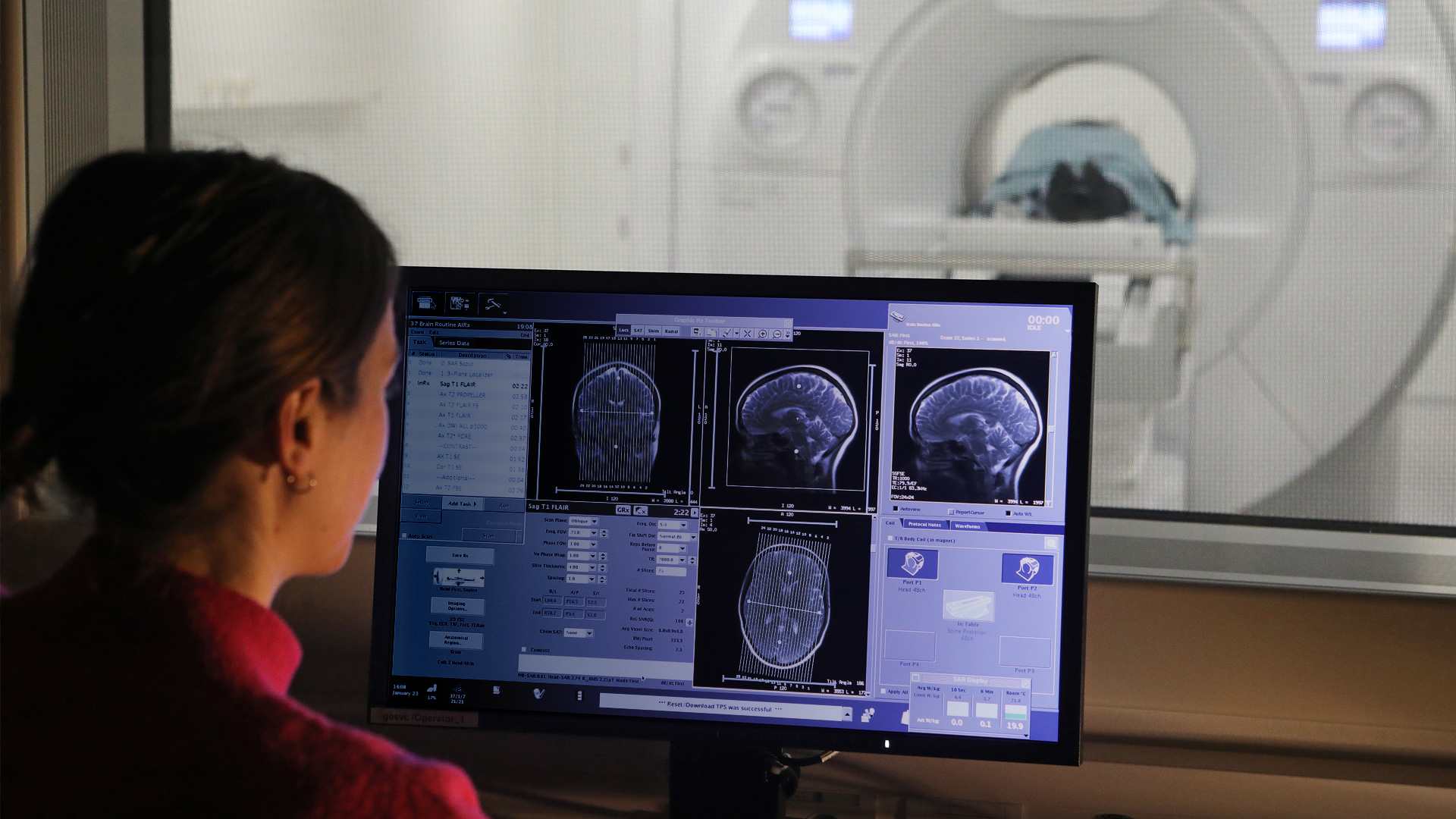Teaching in courses:
Research Group
HyperMIND

Group leader: Mathilde Hauge Lerche
In the HyperMIND group, we explore how the brain functions as a metabolic organ and study how it interacts with the rest of the body through metabolism. To do this, we make molecular activity visible using hyperpolarized magnetic resonance (MR) – a technique that greatly enhances the sensitivity of MR active nuclei. We develop hyperpolarized metabolic contrast agents via dissolution dynamic nuclear polarization (dDNP) and apply MRI, MRS, NMR, and metabolomics in our studies. Our interdisciplinary team bridges physics, chemistry, and biochemistry working across species and scales to uncover metabolic dysfunctions and translate findings from fundamental research to potential strategies for prevention, diagnosis, and treatment.
Research focus
Novel Metabolic Contrast Agents
We develop and investigate novel metabolic contrast agents for hyperpolarized MRI, with a particular focus on 13C-, 15N-, and 2H-labeled compounds. Our work spans from the conceptual design and chemical synthesis of probe molecules to the optimization of hyperpolarization protocols using dissolution dynamic nuclear polarization (dDNP). In parallel, we develop acquisition strategies tailored to the specific physical, chemical, and biochemical properties of each agent to enhance signal utility and maximize biological insight. We apply these probes in preclinical models to explore their in vivo behavior, focusing on their metabolic activity, biodistribution, and potential for non-invasive imaging of disease-related processes.
People:
Ingeborg Sæten Skre Postdoc Department of Health Technology insas@dtu.dk
Per Magnus Albin Karlsson Senior Researcher Department of Health Technology mkarls@dtu.dk
Translation of hyperpolarized MRI from animals to humans
Our goal is to advance hyperpolarized MRI into a viable tool for both research and clinical practice. Bridging the gap from preclinical studies in rodents and pigs to human applications, we refine, enhance, and develop hardware, software, and methodology to maximize clinical impact. To fully realize the potential of hyperpolarized MRI for noninvasive metabolic imaging, we work to harmonize techniques across sites, enabling multisite trials and ensuring robust, reproducible clinical implementation.
People:
Kristina Pilgaard Jacobsen PhD student Department of Health Technology krija@dtu.dk
Peter August Rasmussen Research Assistant Department of Health Technology petau@dtu.dk
Metabolic imaging of the brain with hyperpolarized MRI
We develop hyperpolarized MRI methods to investigate brain metabolism and its dynamic relationship with brain activity. By enabling real-time metabolic imaging, we seek to connect biochemical processes with functional responses, offering new insights into neurological function. Our research explores how metabolic changes in the brain interact with whole-body physiology and disease, providing a foundation for future studies on brain function and therapeutic development. Through advancements in imaging sequences and reconstruction methods, we want to push the limits of what hyperpolarized MRI can reveal about the brain in both health and disease.
People:
Ingeborg Sæten Skre Postdoc Department of Health Technology insas@dtu.dk
Kristina Pilgaard Jacobsen PhD student Department of Health Technology krija@dtu.dk
Hyperpolarization of water and metabolites using UV-generated radicals
We study how nuclear spins can be efficiently hyperpolarized using non-persistent radicals generated by UV irradiation of precursors like pyruvic acid. These radicals decompose upon dissolution, yielding radical-free hyperpolarized water or metabolite solutions. This extends relaxation times, enabling prolonged NMR detection and the potential for sample reuse in multiple hyperpolarized experiments. We apply these radical-free solutions to investigate metabolic markers in healthy and diseased tissue extracts and to study protein hydration dynamics.
People:
Fabian Hecker Postdoc Department of Health Technology fabhec@dtu.dk
Per Magnus Albin Karlsson Senior Researcher Department of Health Technology mkarls@dtu.dk
Group Leader
Mathilde Hauge Lerche Group leader, Associate Professor Department of Health Technology Phone: +45 45253686 mhauler@dtu.dk
